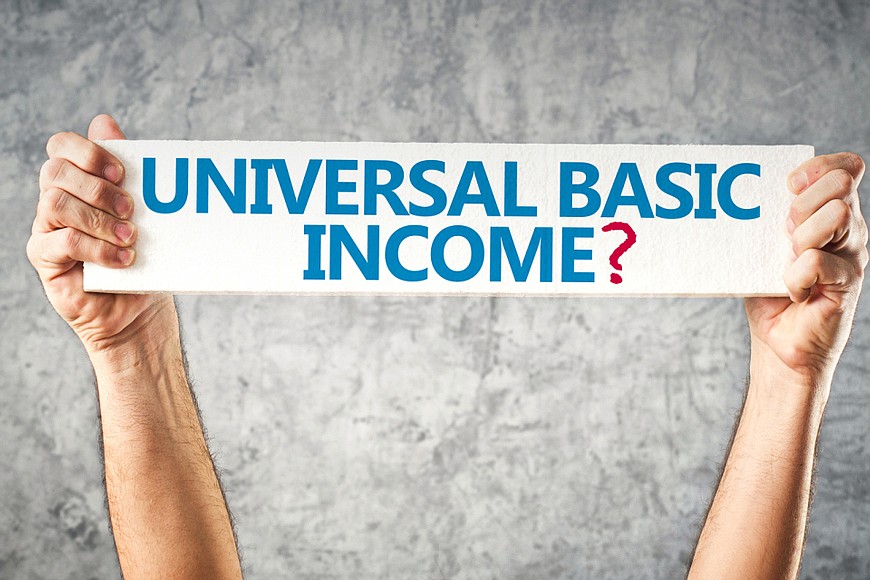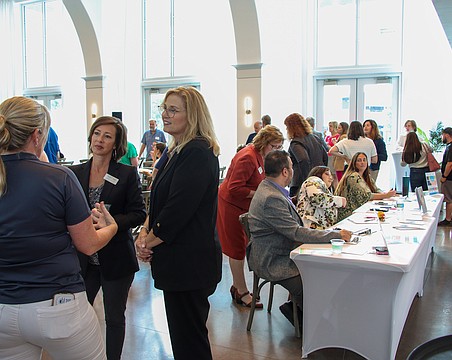One of the hottest ideas for what to do about poverty, at least in intellectual circles, is a universal basic income.
It’s an old concept with some new twists, but the basic idea is the federal government would send everyone a regular check, regardless of how much they earn or their wealth. It would be like an idealized Social Security, a baseline amount for everyone to ensure a minimum standard of living.
Proponents of a universal basic income argue that it would reduce poverty and income inequality by raising up those with the least, improve health by helping people stay healthier and afford health care, improve education attainment because people would not have to leave school early to work for food and shelter, and would give incomes to an increasing number of people working unpaid as caregivers for the young or old, especially women. They also say it would stimulate job growth with the spending by recipients of UBI, and would increase total national wealth.
It is an untried idea. Attempts to test the idea have tended to fail or be abandoned due to changing politics, so we really don’t have a good pilot project to demonstrate how a UBI would work. Proponents point to Alaska as a kind of example, because the Alaska Permanent Fund distributes checks to all residents every year, paid for by revenue from the oil industry. They say this dramatically reduced income inequality in Alaska, and spending of those checks created more 10,000 jobs.
At a national level, several estimates have found that a UBI providing each head of household $2,000 per month would cost nearly $2.5 trillion by 2025. Proponents say that could be paid for by eliminating existing welfare and assistance programs or raising taxes on the rich. But existing welfare and assistance programs at the federal, state and local level would only free up about one-third that amount. Given that major reforms of welfare and assistance programs, or big tax hikes on the rich are rarely seen and politically difficult, paying for a UBI is a big hurdle.
And then there are the consequences of a UBI other than those benefits touted by its proponents. Many point out that eliminating lots of targeted assistance programs, deliberately built over decades to help people with specific needs and replacing them with a check for everyone would help lots of people who don’t need it at the cost of people who do. And they point out it would eliminate programs that have learned how to help people rise out of poverty and succeed on their own. Economic models of UBI have found that it doesn’t end poverty, but changes who is poor relative to the current system.
Perhaps more worrisome is the effect UBI might have on people’s willingness to work. A UBI would provide an unfettered income in return for simply being rather than help to overcome a specific challenge. While most people want to work and get a lot of value in their lives from working beyond mere income, there are some who won’t work if they don’t have to. That is not good for the economy or them. Moreover, one big criticism of current assistance programs is that people who don’t need help but just don’t want to work are able to take advantage of the system. A UBI just sweeps that objection aside, which is bound to create a lot of resistance.
Finally, many proponents of UBI point to the threat that automation and artificial intelligence will eliminate many jobs, and therefore a UBI is necessary to separate adequate income to live from having a job. But with the current unemployment rate around 4%, that problem is at least a ways in the future. Looking at the past few decades, the impact of increasing automation changes the types and distribution of jobs, but not really the total number of them.
All in all, a UBI seems overwhelmingly problematic, and unlikely to solve the problems it targets. Modernity is built on exchange, starting with exchange of one’s labor — physical or mental. Our entire cultural and economic base would have to transform for a UBI to work without creating problems of unaffordable costs, disincentives to strive, create and help others, and even more conflict between doers and takers. Our energies would be much better spent trying to reform and improve outcomes from our current assistance programs.
Adrian Moore is vice president of Reason Foundation and lives in Sarasota.






